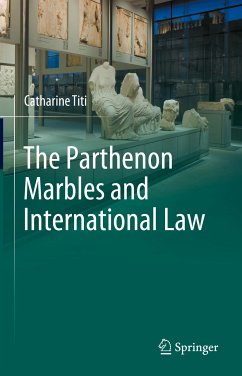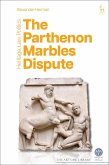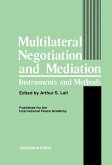Much ink has been spilled on the Parthenon marbles. The ethical and cultural merits of their repatriation have been fiercely debated for years. But what has generally not been considered are the legal merits of their return in light of contemporary international law.
This book is the first in legal scholarship to provide an international law perspective of the cause célèbre of international cultural heritage disputes and,in doing so, to clarify the new customary international law on the return of cultural property unlawfully removed from its original context.
The book is a unique reference work on the legal case for the return of the Parthenon marbles and the new normative framework for the protection of cultural heritage.
This is a book that must be read with attention by all parties to this debate; and it is my hope and belief that it will accelerate the process by which an art-loving and philhellenic Britain finds a consensual way to return to its ancient ally a collection of broken and decontextualised fragments which illuminate a moment two and a half millennia ago when the city that pioneered democracy created a monument of transcendent beauty which embodied the values that inspire us still.
Andrew Wallace-Hadrill, Emeritus Professor and Director of Research, Faculty of Classics, University of Cambridge
Catharine Titi, a brilliant Greek academic lawyer based in Paris, has written a superb, entirely fresh account of the seemingly interminable 'Elgin Marbles' controversy. Cutting through the swathes of ideological obfuscation, she patiently and incontrovertibly demonstrates just how shaky in international law is the UK's case not alone for retention but even for the original possession let alone ownership of the Sculptures held in the British Museum.
Paul Cartledge, AG Leventis Professor of Greek Culture emeritus, University of Cambridge
Dieser Download kann aus rechtlichen Gründen nur mit Rechnungsadresse in A, B, BG, CY, CZ, D, DK, EW, E, FIN, F, GR, HR, H, IRL, I, LT, L, LR, M, NL, PL, P, R, S, SLO, SK ausgeliefert werden.
"Titi achieves a significant milestone in international legal scholarship ... . Titi's book is an important asset to potential stakeholders engaged in efforts to ensure restitution, and particularly to the Greek government. Moreover, the book succeeds in translating public sentiment into convincing international legal language, validating what Greeks have felt for decades: justice demands that the marbles be brought back 'home'. This, perhaps, is Titi's most immeasurable contribution." (Panagiotis A Kyriakou, Cambridge International Law Journal, Vol. 13 (1), June, 2024)
"A superlative examination of the legal case surrounding the status of the Parthenon Marbles ... Her magisterial work ... is truly groundbreaking. It is indeed fit to put to rest for good one allegedly key support for the British Museum's retentionist case. ... It is not possible to summarise justly a work of the depth, complexity and originality of Titi's." (Paul Cartledge, ARGO - A Hellenic Review, Issue 19, 2024)
"Her magisterial work is truly groundbreaking ... ." (Alexander Herman, Classics for All, classicsforall.org.uk, February 12, 2024)
"In The Parthenon Marbles and International Law, Catharine Titi ... examines how the marbles were acquired, the question of good title, and the various legal mechanisms that may or may not be employed to secure their return to Greece. ... There is nothing like the regimented examinations of one trained in law. ... thorough recital ... ." (Eleni Vassilika, The Art Newspaper, theartnewspaper.com, September 29, 2023)
"This gem of a book ... a very strong and formidable text ... . The Parthenon Marbles and International Law is both a tour de horizon and a tour de force on the law. Marvelously written and with a keen eye for both detail and nuance, Professor Catharine Titi informs as much as she provokes thought on the nature of international law ... . It is a must read for anyone interested in this area of international law." (Michael G. Karnavas, michaelgkarnavas.net/blog, August 2, 2023)









